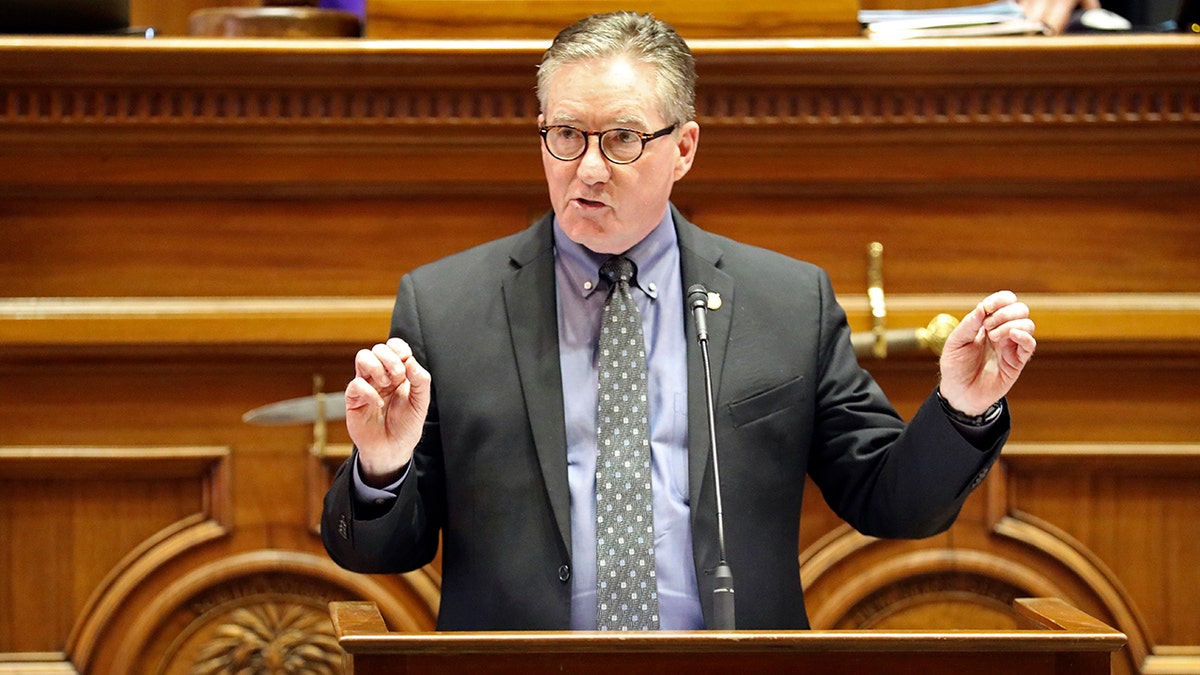After months of just talking among themselves, lawmakers in South Carolina are finally debating making changes in how the General Assembly chooses judges.
Senators on Thursday took up a bill altering the procedure for picking who sits on the bench. But there are plenty of warnings that wholesale changes aren’t going to happen in the process by which the General Assembly votes on judges from the Supreme Court down to the Circuit Court.
SOUTH CAROLINA MAN ARRESTED FOR THREATENING JUDGE: ‘I’LL RIP YOUR FACE OFF’
Off the table appear to be changes like having judges get chosen in popular elections or having the governor appoint judges either with or without approval from lawmakers. Those big alterations would require a voter-approved constitutional amendment which starts with a two-thirds vote in the General Assembly.
Instead, the bill in the Senate mostly concentrates on smaller changes with the Judicial Merit Selection Commission, a group of legislators and lawyers who do extensive investigations into judicial candidates, a process that entails examining everything from their finances to their temperament to their knowledge of the law.
The bill would remove the cap of three nominees the commission sends to the General Assembly. Instead, all qualified candidates would go forward. It would also alter the makeup of the commission to allow appointments from the governor, the chief justice and a group of both prosecutors and defense attorneys.
The Senate spent less than an hour debating Thursday and mostly listened to a description of the bill. Republican Senate Majority Leader Shane Massey told senators to be ready for at least two full days of debate while the bill’s supporters promised to discuss a number of possible changes.

South Carolina state Sen. Greg Hembree, R-Little River, speaks about a bill altering the procedure used to elect judges in the state, Thursday, Feb. 29, 2024, in Columbia, S.C. (AP Photo/Jeffrey Collins)
But big changes appear unlikely even after hours of hearings in House committees this year about how people in the state have lost faith in the system.
There were stories of judicial candidates being pressured to drop out of elections to prevent embarrassment. Others discussed how lawmakers would delay cases by abusing their legislative immunity to stay out of court if they have legislative work.
Some called for attorneys who are lawmakers to either be removed from the screening commission or from electing judges period because as lawyers they could end up arguing cases before judges who owe their job to a General Assembly election.
The legislators on the commission — all of whom are lawyers — struck back, saying some of the stories weren’t true and others were at best isolated cases blown out of proportion.
“This is not an indictment of the current system,” said Republican Sen. Greg Hembree as he explained the bill on Thursday. Hembree isn’t on the screening commission.
Most of the hearings were in the House, which came up with a list of things it would like to change, but hasn’t acted on that with a proposal yet.
And time is an enemy of any proposal. The General Assembly adjourns in early May and the whole reform idea would have to start at square one in 2025 if it doesn’t pass and get signed by the governor.
Since those hearings, supporters of the system have gotten some high-profile help from throughout the legal system.
At a Senate Judiciary Committee meeting on Tuesday, former Chief Justice Jean Toal said South Carolina elects remarkably well-qualified judges and the Legislature-elected system, shared only with Virginia, is vastly superior to public election of judges and all the problems with independence and competency that system causes.
“The system is good. but changing pieces of it — not throwing out the baby with the bathwater — is the way to go,” said Toal, who was the state’s first woman to serve as chief justice and was on the state Supreme Court for 27 years.
“The best regulation is self-regulation,” Toal told the senators several times.
Democratic Sen. Dick Harpootlian, a lawyer for five decades who is pushing for more reforms, gently pushed back on Toal.
CLICK HERE TO GET THE FOX NEWS APP
“I’m afraid, as we’ve seen with legislators in the past, not all of them are susceptible to that self-regulation,” Harpootlian said.
